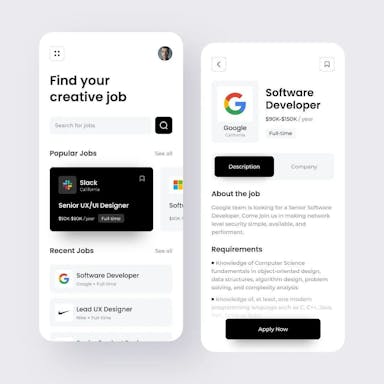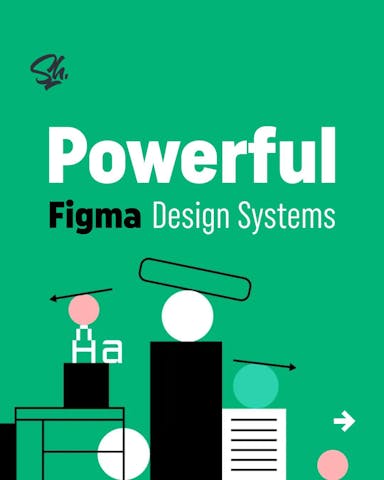Welcome to our guide on crafting effective meeting feedback survey questions. Meetings are a crucial aspect of corporate communication, and it's essential to ensure their productivity and effectiveness. As a team leader or event organizer, our goal is to empower you to fine-tune your meeting approach based on insightful feedback, transforming your gatherings into dynamic, outcome-driven sessions. By understanding and utilizing feedback survey questions for meetings, you can create an effective meeting feedback survey that leaves a lasting positive impact on your team.

Understanding the importance of meeting feedback
Meeting feedback serves as a powerful tool, illuminating the strengths and weaknesses of your meeting structure and content. By exploring why feedback matters, we highlight its ability to improve engagement, efficiency, and overall satisfaction among participants. The impact of such feedback directly correlates with the quality and productivity of meetings, prompting continuous improvement. Ultimately, the insights gathered form the backbone for fine-tuning your meeting approach to better serve your team's objectives.
Why meeting feedback matters
In today's competitive business environment, effective communication is essential for success. By incorporating meeting evaluation survey questions and meeting feedback questions into your review process, you can identify areas in which your meetings can be improved. This will, in turn, enhance participant engagement and satisfaction, as well as streamline the entire meeting process.
The impact of feedback on meeting quality
Without feedback, it becomes difficult to pinpoint what is working well and what needs improvement in your meetings. By utilizing targeted survey questions, you can gather valuable data that can inform crucial adjustments to your meeting structure, content, and facilitation. In turn, this can lead to increased productivity, better decision-making, and a more satisfying experience for all participants.
Key outcomes of gathering feedback
Collecting meeting feedback from your attendees provides crucial insights that can lead to various positive outcomes. Enhanced communication strategies, more effective time management, and better meeting alignment with broader goals are just some of the tangible results of incorporating meeting feedback into your processes. As you continue to refine your approach based on the feedback received, you'll be able to create a more productive, efficient, and collaborative meeting environment, ultimately contributing to the ongoing success of your organization.
Designing your meeting feedback survey
Designing a meeting feedback survey demands an understanding of what insights you aim to gather and why. In this section, we'll discuss creating a survey that speaks to your specific goals, ensuring that each question you ask contributes to a clearer picture of how your meetings are performing. From selecting the right question type to determining the optimal survey length, our guidance ensures your survey design is both strategic and user-friendly, encouraging participants to provide their candid thoughts and suggestions.
First, identify the key objectives you hope to achieve through your effective meeting feedback survey. Are you looking to assess overall satisfaction, participant engagement, or the usefulness of the information presented during the meeting? By defining your goals, you can tailor your survey questions for meeting effectiveness and accurately measure the aspects that matter most in achieving a successful meeting.
Next, consider the different types of questions that can yield useful data in your meeting feedback survey. Multiple-choice, rating scales, open-ended, and binary questions each serve different purposes and can provide unique insights into the meeting experience. When crafting your survey, aim for a balance between informative quantitative data and qualitative responses that offer attendees the opportunity to share their thoughts and feedback in their own words.
Additionally, paying attention to survey length is essential in promoting high response rates. A lengthy, time-consuming survey may deter participants from providing feedback, leading to lost opportunities for valuable insights. Aim for a concise survey with a focus on relevant and well-structured survey questions for meeting effectiveness. This approach enhances the user experience and increases the likelihood of receiving honest and comprehensive responses.
Lastly, ensure that your survey design is visually appealing, easy to navigate, and compatible with various devices. A professional and user-friendly layout fosters participation and demonstrates that you genuinely value attendee feedback, paving the way for continuous improvement in your meeting approach.

Types of meeting feedback questions to include
As you craft your meeting feedback survey, it is essential to understand the different types of questions that can help you assess meeting effectiveness. In this section, we'll explore both qualitative and quantitative questions, emphasizing their importance in yielding a comprehensive understanding of participant experiences.
First, let's discuss qualitative questions. These questions can provide valuable insight into the personal thoughts, opinions, and experiences of participants. Two essential qualitative question formats to consider for a meeting feedback survey are:
-
Open-ended questions - These questions enable attendees to express their thoughts freely without feeling confined to predefined options. Examples of open-ended questions might include asking participants about their favorite part of the meeting, what they'd like to see improved, or what topics they would like to discuss in future meetings.
-
Binary questions - This format requires respondents to choose between two options, such as "yes" or "no", allowing you to collect focused, clear, and easily analyzed feedback. An example of a binary question could be, "Did the meeting start on time?"
Now let's look at quantitative questions, which provide measurable data to help identify patterns and trends in the responses. Two widely used quantitative question formats in meeting feedback surveys are:
-
Multiple-choice questions - These questions present participants with a list of possible answers, making it easy to quantify responses. For example, you might ask attendees about their satisfaction with the meeting venue, providing options such as "very satisfied," "satisfied," "neutral," "dissatisfied," and "very dissatisfied."
-
Rating scale questions - With this format, respondents are asked to rate a statement or question on a scale, such as from 1 to 5 or 1 to 10. This setup makes it simple to gauge differing degrees of agreement, satisfaction, or understanding among attendees. For instance, you could ask participants to rate the clarity of the meeting objectives on a scale of 1 (not clear at all) to 10 (very clear).
Incorporating a mix of these question formats in your meeting feedback survey will yield a well-rounded assessment of your meeting's impact. By combining qualitative and quantitative questions, you can gather detailed, actionable insights to improve your meetings and satisfy attendees' needs and expectations.
Crafting effective meeting feedback survey questions
The success of your feedback survey relies heavily on the quality of the questions you ask. In this section, we'll explore the significance of clarity and conciseness in formulating questions, discuss methods to prevent bias from influencing the results, and address the crucial aspect of ensuring participant anonymity to encourage honest responses.
Tips for clear and concise questions
Constructing direct and easily understood questions is vital for effective meeting evaluation survey questions, as it helps avoid misinterpretations and response fatigue among participants. Ensure that your questions focus on one specific aspect of the meeting, use simple language without jargon, and keep them brief to simplify the response process for attendees. By devoting attention to these factors, you'll be well on your way to designing an effective meeting feedback survey.
Avoiding bias in survey questions
To obtain accurate and valuable insights from the meeting feedback questions, it's essential to eliminate any biases that might influence the respondents' perspectives. Refrain from using leading questions or assumptions about participants' experiences or opinions. Also, keep the answer options neutral and balanced to prevent skewing the results. By carefully reviewing the phrasing of your questions, you can identify potential biases and adjust your queries accordingly.
Ensuring anonymity and honest responses
Providing a sense of confidentiality plays a critical role in encouraging participants to share their genuine feedback without fear of retaliation or prejudice. Assure respondents that their input will remain anonymous and that their responses will only be used for improving future meetings. When attendees feel secure in sharing their honest thoughts, you'll be better equipped to address concerns and take the necessary steps to enhance the overall meeting experience.

Meeting feedback survey questions for before the meeting
Gathering feedback before the meeting can set the stage for a productive session. Pre-meeting surveys can help you gauge attendee expectations, clarify objectives, and address logistical concerns. In this section, we'll explore how asking the right survey questions for meeting effectiveness beforehand can lead to more focused and effective meetings, and provide examples of meeting feedback survey questions that can solicit actionable insights for meeting preparation.
First and foremost, it's vital to understand the purpose of the meeting and the expected outcomes. Start by asking questions that help identify the attendees' expectations, such as:
-
What do you hope to achieve from this meeting?
-
Are there any specific topics or issues you would like to discuss during the meeting?
-
Do you have any concerns or questions regarding the upcoming meeting?
Once you have a better understanding of the attendees' expectations, it's time to clarify the objectives of the meeting. Ask questions that prompt attendees to think critically about the goals and the significance of the meeting, such as:
-
What are your top priorities for this meeting?
-
How can we ensure that the meeting stays focused on the intended objectives?
-
Are there any potential hurdles or challenges that may impede the achievement of the objectives?
Lastly, addressing logistical concerns is essential for a smooth and productive meeting. Inquire about any technical or physical requirements that attendees might have, and ensure that all necessary resources are available. Consider asking:
-
Do you need any specific resources or equipment for this meeting?
-
Are there any accessibility or dietary requirements we should be aware of?
-
Do you have any suggestions for improving the meeting environment or setup?
In conclusion, incorporating pre-meeting survey questions for meeting effectiveness can provide valuable information to ensure that your meetings are well-prepared, focused, and productive. By understanding the expectations, clarifying the objectives, and addressing logistical concerns, you can set the stage for a successful meeting experience for all participants.
Meeting feedback survey questions for during the meeting
Gathering feedback during the meeting plays a crucial role in offering immediate insights that can be used for adapting the course of the session in real-time. In this section, we will present questions that assess participant engagement, the effectiveness of the agenda, and the overall structure. Additionally, we will examine the feasibility and benefits of incorporating real-time feedback mechanisms, such as live polling or digital platforms, to measure and potentially enhance participant involvement on the spot.
Engagement and participation questions
Engagement and participation are key indicators of a successful meeting. To evaluate these aspects, consider incorporating the following feedback survey questions for meetings:
-
On a scale of 1-5, how engaged did you feel during the meeting?
-
Were the discussions inclusive and encouraging of diverse viewpoints?
-
Did the meeting facilitator provide adequate opportunities for everyone to contribute?
These meeting feedback questions will not only help you gauge engagement levels but also identify areas for improvement in fostering an inclusive and collaborative meeting environment.
Assessing the meeting agenda and structure
It's imperative to ensure that the meeting agenda and structure are effective in guiding the conversation and achieving desired outcomes. Include meeting evaluation survey questions like:
-
Was the meeting agenda clear and well-organized?
-
Were the allotted timeframes for each agenda item appropriate for the discussion needs?
-
Were there any unnecessary or redundant discussions?
By seeking feedback on these aspects, you can work towards refining the structure of your meetings to increase their efficiency and productivity.
Real-time feedback mechanisms
Integrating real-time feedback mechanisms into your meetings can provide insights that may allow you to adjust the course of the session on the fly. Tools like live polling or digital platforms for anonymous feedback can serve to enhance participant involvement and ensure the meeting remains focused on its objectives. Some possible applications include:
-
Gauging consensus on decisions being made during the meeting.
-
Identifying topics that may require more debate or discussion.
-
Soliciting quick feedback on the pace or direction of the meeting.
Considering the inclusion of real-time feedback tools as part of your meeting strategy can optimize the flow and outcomes of your discussions while engaging participants actively throughout the session.
Meeting feedback survey questions for after the meeting
Post-meeting surveys are crucial for understanding the perceived value and outcomes of meetings from the attendees' perspective. These meeting feedback survey questions provide insights into what was learned, the effectiveness of communication, and the degree to which the meeting objectives were achieved. This feedback can play a pivotal role in refining future meetings and ensuring ongoing improvement in meeting management practices.
When developing survey questions for meeting effectiveness, consider various aspects that contribute to a successful and engaging session. Ask participants about the clarity of the presenter's message, the relevance of the content shared, and the quality of any visual aids used. Additionally, inquire about the time management, pacing, and interaction among attendees, as these factors contribute to an effective meeting feedback survey.
Here are some example questions that can help you gather valuable feedback:
-
On a scale of 1-5, how would you rate the overall effectiveness of the meeting?
-
Did the meeting achieve its intended objectives?
-
How well did the presenter(s) communicate their message?
-
Were there any parts of the meeting you found particularly useful? If so, please explain.
-
Were there any parts of the meeting you found confusing or irrelevant? If so, please explain.
-
What could be done differently in future meetings to make them more engaging and productive?
By carefully selecting and refining your post-meeting survey questions, you can gain vital insights into your meeting's impact and identify areas for improvement. This feedback will enable you to optimize your future meetings, ultimately creating more productive and enjoyable experiences for all attendees.
Also Read
Conclusion
In summary, the importance of incorporating feedback surveys into your meeting protocols cannot be overstated. With well-constructed meeting feedback survey questions, these surveys can serve as a powerful diagnostic tool that enhances every aspect of your meetings. By strategically using both qualitative and quantitative questions, you obtain a comprehensive understanding of participant experiences and insights.
Evaluating your meetings through effective feedback surveys allows you to gather the necessary information to refine your meeting approach, fostering more engaged and productive sessions. As this guide demonstrates, the right mix of questions - from setting expectations before the meeting, assessing engagement during the meeting, and determining the value of the discussion after it has occurred - can have a significant impact on the effectiveness of your meetings.
By embracing this guide and putting into practice the principles and insights shared, you will be well on your way to developing an effective meeting feedback survey that helps transform your gatherings into results-driven and outcome-focused sessions. Understanding and acting on the feedback collected not only contributes to a better meeting experience for your attendees, but it also ensures that your meetings deliver the desired results for your team and organization.
FAQ
What is the purpose of a meeting feedback survey?
A meeting feedback survey aims to gather valuable insights on the effectiveness, engagement, and satisfaction of participants in a meeting. The feedback gathered can help identify areas of improvement and refine the meeting process to enhance overall communication and productivity.
How do I design an effective meeting feedback survey?
An effective meeting feedback survey should be designed with clear goals in mind and include a combination of multiple-choice, rating scale, open-ended, and binary questions. Ensure the questions are concise, unbiased, and encourage honest responses by ensuring anonymity.
Are pre-meeting surveys helpful in improving meeting effectiveness?
Yes, pre-meeting surveys can help gauge attendee expectations, clarify objectives, and address logistical concerns. By asking the right questions beforehand, you can lead to more focused and effective meetings.
How can I gather feedback during the meeting?
Gathering feedback during a meeting can be done by incorporating real-time feedback mechanisms such as live polling or digital platforms. Assess participant engagement, the effectiveness of the agenda, and the overall structure by asking relevant questions during the meeting.
What types of questions should I include in a post-meeting survey?
Post-meeting surveys should focus on understanding the perceived value and outcomes of the meeting. Include questions that reveal what was learned, the effectiveness of communication, and the degree to which the meeting objectives were achieved. This feedback can help improve future meetings and meeting management practices.
Aishwarya Kapoor
Blog WriterPassionate writer who loves diving into diverse subjects. Through my engaging content, I aim to inspire and captivate readers.
Suggested Articles







